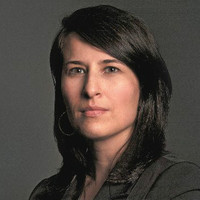Sheelah Kolhatkar is a staff writer at The New Yorker and the author of Black Edge: Inside Information, Dirty Money, and the Quest to Bring Down the Most Wanted Man on Wall Street.
“Suddenly the financial crisis happened and all this stuff that had been hidden from view came out into the open. It was like, ‘Oh, this was actually all kind of a big façade.’ And there was all this fraud and stealing and manipulation and corruption, and all these other things going on underneath the whole shiny rock star surface. And that really also demonstrated to people how connected business stories, or anything to do with money, are to everything else going on. I mean, really almost everything that happens in our world, if you trace it back to its source, it’s money at the root of it.”
Thanks to MailChimp, Blue Apron, and Stamps.com for sponsoring this week's episode.

